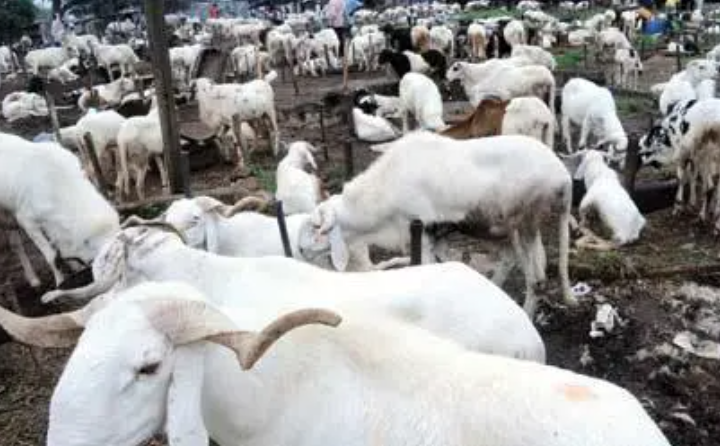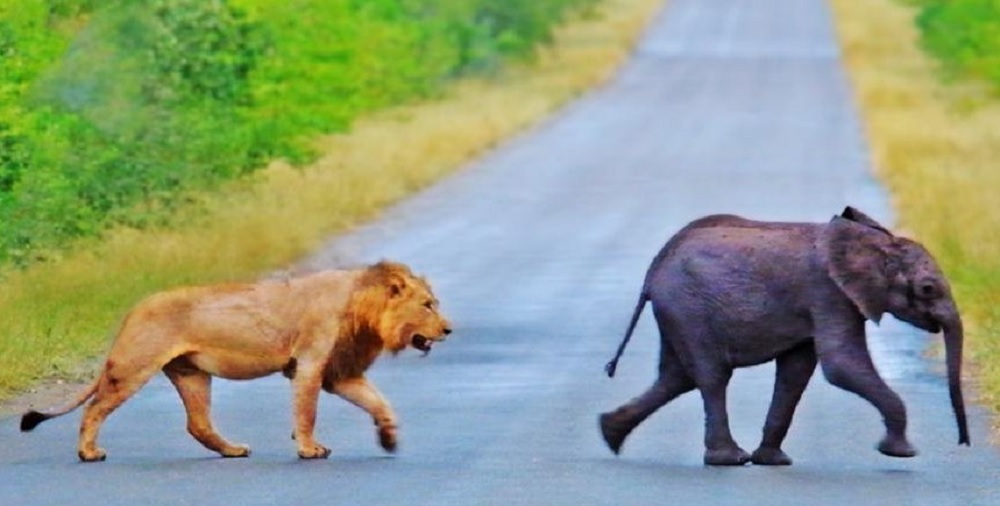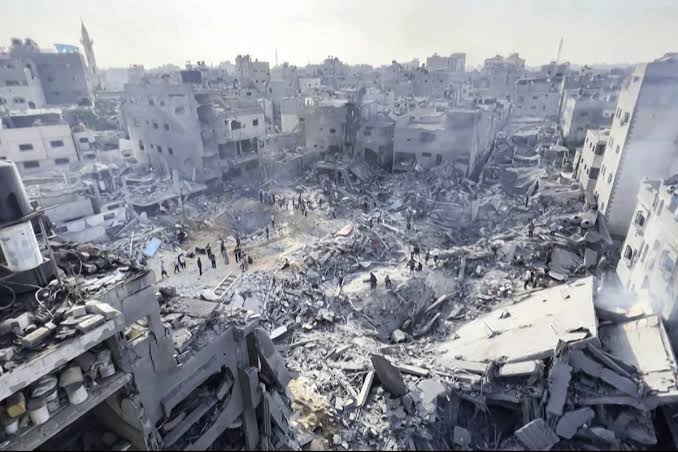News
Sallah: Ram traders decry low sales amidst high prices, insecurity

As the countdown to Sallah festivities narrows, ram sellers across the country are currently grappling with a disturbing trend of low patronage.

Their voices showed frustration and worry as they attributed the slow patronage to a combination of economic challenges, spate of insecurity, and transportation costs for the animals sourced from northern Nigeria.
The PUNCH reports that some ram sellers in Ogun, Lagos, Gombe, Bauchi, Nasarawa and Sokoto states, observed the high prices of the rams ahead of the forthcoming Sallah celebration.
A cattle trader, who spoke with Sunday PUNCH at Ibafo, Obafemi-Owode Local Government Area, Ogun State, Ibrahim Yusuf, explained that a big ram was sold between N500,000 and N700,000 with the least sold for N250,000.
Yusuf said, “Rams are so costly this year and the reason for it is the insecurity in the North. We no longer get rams there anymore. We have to travel to Mali most of the time to get the rams and the money we spend in that process is contributing to the huge prices”.
In Arepo, also in Ogun State, another trader who identified himself only as Muhammed said, “The effects of the activities of insurgents, banditry among others contributed to the surge in the prices of the rams as the supplies from the region had gradually reduced.
“The profits we make now are meagre compared to the amount we always spend on getting the rams here from Mali. Rams are very expensive this year and they are between N300,000, N650,000, depending on the size”.
Another seller in the Ijaiye area of Lagos, who refused to give his name, said, “Prices of ram are high now. You know what is happening in the country these days. The smallest ram here now is N300,000.
“Though if you have N200,000, I can still find one for you, generally, in this place, we have rams of N400,000, N600,000 and N800,000. It is not our fault. The cost of transporting the rams to Lagos is another thing, but there is nothing we can do about that”.
In Gombe State at Tike market in Pantami, a seller, Dan Garba, said, “Now, we have N800,000 ram, but last year, we sold the same size between N350,000 to N450,000. The cheapest ram here is N150,000 only. It’s not our fault; that (N150,000 ram) was the ram we sold for N75,000 last year”.
Another trader, Sultan Abubakar, stated, “Customers are not coming to buy. If customers don’t come, how am I going to take care of my family? I can’t sell below cost price. I will not realise my money”.
Similarly, in Kasuwar Shanu, Bauchi State, Olaniyi Musa, who said he bought and distributed rams to southern states (Oyo, Ogun, Ibadan, and Osun), claimed that the inflation in the country also affected animal prices.
Olaniyi maintained that the turnout of buyers this year was very low.
He said, “Compared to last festival season, the price of animals has skyrocketed. The inflation rate and shortage of rain have a significant impacted on the prices of the animals. Last year, we bought the animal at the lowest price of N40,000 to N45,000 while this year the lowest price is N100,000”.
On his part, the Treasurer of the Association of Buyers of Animals and Animals Feeds, Bauchi chapter, Zakariya Mato said rams were selling at the prices of N400,000, N300,000, N200,000 and N100,000.
He said, “There was a reasonable increase in the price compared to 2023 as the prices of animal feeds were also affected by inflation. The low turnout of buyers is not unconnected with the traditions in Bauchi State that the buyers arrive at the market two to three days before Sallah to buy the animal to avoid theft at home”.
In the same vein, Dahiru Garba who is also a cattle seller in the Bauchi market said, “Last year by this time my customers from Kano, Kaduna, Katsina, and other northern states were calling me on the phone to send animals to them”.
Buyers bemoaned the increased cost of the rams.
One of the buyers, Hassan Ismail, said that a medium-size ram that was sold for about N70,000 last year was now between N110,000 and N120,000.
He said, “It is disheartening that the price of these essential items is getting this high daily, how can an ordinary man celebrate this Sallah with this situation of things for God’s sake? I don’t think I will buy any Ram”.
Another buyer, Shamsudeen Ibrahim, said, “I have already made up my mind not to buy anything this year. I cannot kill myself or where do I have close to N200,000 to buy Ram this year? I will explain to my children and I am sure they will understand as times go this year”.
Also speaking, Abubakar Salami, who sells cattle in the market, said the market situation this year was bad when compared with what it was last year.
News
Kenya: Lion kills 14-year-old girl, elephant kills man in separate incidents

A lion killed a 14-year-old girl outside Kenya’s capital Nairobi while an elephant killed a 54-year-old man in the central part of the country, the Kenya Wildlife Service (KWS) said this weekend.
The attack on the girl occurred on Saturday in a ranch to the south of Nairobi National Park.
The attack was witnessed by another teenager, who raised the alarm, the KWS said in a statement.
“KWS rangers and response teams were swiftly mobilized and traced bloodstains leading to the Mbagathi River, where the girl’s body was recovered with injuries on the lower back,” the conservation agency said in a statement.
“The lion was not sighted at the scene,” it added.
It said a trap had been set for the lion and teams deployed to comb the area, along with additional safety measures.
The KWS said a 54-year-old man had also been killed by an elephant in Kenya’s Nyeri County on Friday. The agency gave no further details about that incident.
“KWS conveys its heartfelt condolences to the bereaved families and continues to work closely with local law enforcement and communities to enhance the safety of people living near protected wildlife areas,” it said in the statement.
It called for more investment in “human-wildlife conflict mitigation”, including early warning systems and greater collaboration with affected communities.
In a statement to the BBC Paula Kahumbu, head of the WildlifeDirect conservation group, urged Kenya Wildlife Service to improve “risk assessments and ensure accurate, real-time communication of wildlife movement and behavior, especially in known high-risk areas such as Savannah Ranch,” where the girl was killed.
Last year, police in Kenya recovered the body of a man believed to have been attacked by a lion while he was riding a motorcycle near a national reserve in the south of the country.
The lion population was declining in Kenya just over a decade ago, primarily due to human-wildlife conflict. The government listed lions as endangered, with an estimated population of 2,000 in 2010. A more recent survey put the number at 2,489.
In 2023, 11 lions were speared to death in just one week — including one of Kenya’s oldest wild lions — by herders after the big cats killed their livestock.
Last year, the BBC reported CCTV footage captured the moment a lion snatched a Rottweiler dog from another home near Nairobi National Park
News
Celebrity boxing: Speed Darlington wants rematch after losing to Portable

By Kayode Sanni-Arewa
Nigerian singer Speed Darlington is calling for a rematch against Portable after losing to him in a celebrity boxing match.
Speed Darlington was knocked out in the second round, and he’s unhappy about the outcome.
In a video, he claimed Portable didn’t deserve the win and the prize money, saying he had plans to use the money to build a swimming pool for his community in Imo State.
Portable, I want a rematch. E dey pain me say you dey carry all that money dey go. E dey break my heart.
” I want a rematch. It’s so unfair. You have up to two experience before me and you fight. I never enter ring before. I did not come from poverty,” he said.
“You don’t deserve that money. E dey pain me. I want to build swimming pool for my villagers. I need a rematch, Portable”, he said.
According to Speed Darlington, Portable had an unfair advantage due to his experience, accusing him of using supernatural means to win the fight.
He also claimed he suffered a shoulder injury during the match despite not feeling tired.
Speed Darlington, who wants a rematch, said he needs 30 days to prepare better
News
Israel’s remote controlled bulldozers breaking ground in Gaza war

At first glance, there is nothing unusual about the bulky bulldozer turning up soil at a testing site in central Israel, but as it pulled closer it became clear: the driver’s cabin is eerily empty.
This is the Robdozer, a fortified engineering vehicle manned remotely, and in this case operated from a military expo halfway across the globe in Alabama.
Army engineers and military experts say that the Robdozer — the robotic version of Caterpillar’s D9 bulldozer — is the future of automated combat.
The Israeli military has used D9 for years to carry out frontline tasks like trowelling roads for advancing troops, removing rubble and flattening terrain.
But since war in Gaza broke out in October 2023 and later in Lebanon, the Israeli military has increasingly deployed this robotic version in a bid to enhance its field operations and reduce the risks to its troops.
“The idea is to eliminate the person from the cockpit of the dozer,” said Rani, whose team at the state-owned Israel Aerospace Industries developed the Robdozer.
An unmanned D9 bulldozer digs up a field during a demonstration to the press at the Israel Aerospace Industries (IAI) quarters near Tel Aviv on March 26, 2025. Israel’s increasing use of advanced technology on the battlefield, from air defence systems to a broad range of AI-driven intelligence tools, has been well-documented but also criticised for inaccuracies, lack of human oversight and potential violations of international law. (Photo by GIL COHEN-MAGEN / AFP)
During the Gaza war, the military has increasingly opted for the unmanned version, which can carry out a full range of tasks “even better than a human”, said Rani, using his first name only for security reasons.
While such vehicles and other systems are currently operated by humans, future versions could be autonomous, raising ethical and legal concerns over the unchartered future of warfare being shaped by the Israeli military in the Gaza war.
‘Changing the paradigm’
Israel’s increasing use of advanced technology on the battlefield, from air defence systems to a broad range of AI-driven intelligence tools, has been well-documented but also criticised for inaccuracies, lack of human oversight and potential violations of international law.
Analysts say the growing Israeli deployment of the Robdozer reflects broader global trends towards automation in heavy combat vehicles, like remote-controlled personnel carriers that operate much like drones.
An Israeli military official, who requested anonymity to discuss sensitive matters, told AFP that the army has been using “robotic tools for over a decade, but in very small numbers. Now it is being used in large-scale warfare”.
-

 News23 hours ago
News23 hours agoBLACK EASTER: Over 150 massacred in Plateau, Benue
-

 News19 hours ago
News19 hours agoDouble tragedy: Father, three children, maid killed in Osun road crash
-

 News19 hours ago
News19 hours agoSAD! SEC DG says “we can’t recover N1.3trn Nigerians lost to CBEX ponzi scheme”
-

 News17 hours ago
News17 hours agoNDLEA nabs bandits supplier with drugs concealed in private part(Photos)
-

 Metro23 hours ago
Metro23 hours agoShock as 2 naked lovers found dead in Kogi
-

 News23 hours ago
News23 hours agoIMF expresses concern over high poverty rate, food insecurity in Nigeria
-

 Economy23 hours ago
Economy23 hours agoVolvo announces termination of 800 U.S. workers, cites tariff, market decline
-

 Sports12 hours ago
Sports12 hours agoBREAKING! Arsenal hammer relegation Bound Ipswich 4-0






